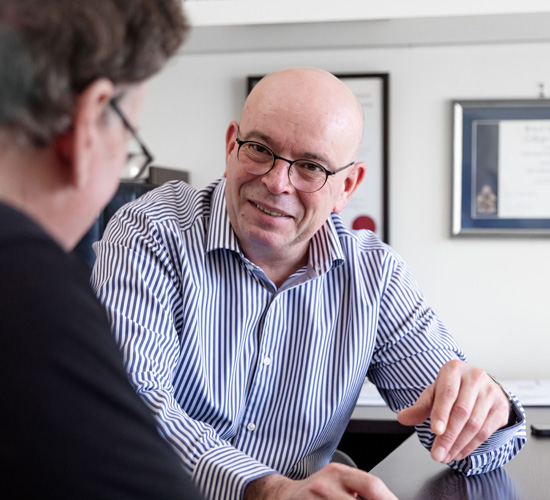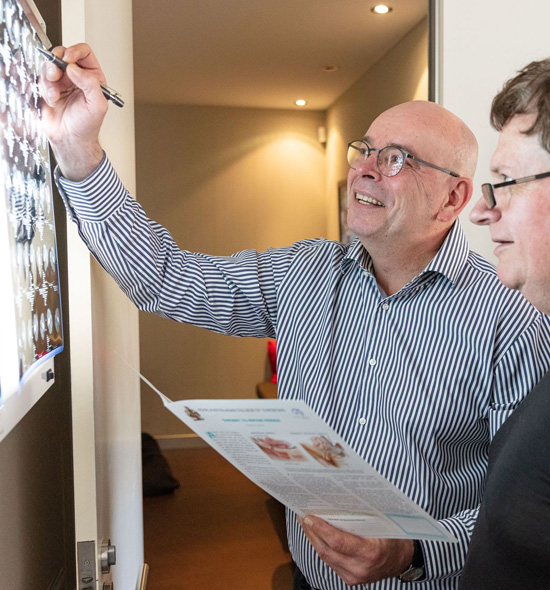Soft Tissue Sarcoma Surgery in Sydney
What is a soft tissue tumour?
A soft tissue tumour is a growth that begins in the soft tissues of the body, such as muscles, fat, joints, nerves and blood vessels. There are many different types and they can occur anywhere in the body, but are most common in the extremities (upper and lower limbs) and trunk. These tumours can be benign or malignant, can vary widely in appearance and behaviour, and are named based on the tissue of origin. The most common type of benign soft tissue tumour is a lipoma, and other benign tumours include angiolipoma, fibroma, neurofibroma, schwannoma, neurilemmona and myxoma. Malignant soft tissues tumours are known as sarcomas.
What is a soft tissue sarcoma?
A soft tissue sarcoma is a rare type of cancer that begins in the soft connective tissues of the body. Unlike benign soft tissue tumours, sarcomas can be more aggressive, can invade and occasionally metastasize to other sites. They can develop anywhere in the body and there are over 50 types, usually named based on their tissue origin. Some sarcomas are associated with certain inherited disorders, or with previous radiation therapy.


What will happen during your consultation for a soft tissue tumour or sarcoma?
The surgeon will discuss your symptoms and family history, perform a careful examination, and review imaging studies. Further investigations may be arranged included other imaging tests (e.g. ultrasound, CT, MRI, PET) and a tissue biopsy. Treatment options will be discussed and you will have the opportunity to ask many questions in order to make the best decisions for your care.
How are soft tissue tumours and sarcoma’s treated?
Benign soft tissue tumours can be either simply monitored with observation, or surgically removed. Surgical excision might be recommended if the tumour is large or causing symptoms, or if excision is required in order to confirm that its benign. Soft tissue sarcomas will be treated by a team of health professionals called a multidisciplinary team (MDT), and the Sydney Surgical Clinic liaises with the Sarcoma MDT at Prince of Wales Hospital to provide expert care to patients. Treatment for sarcoma depends on the type, location in the body, the stage of disease and your general health and preferences. Treatment options might include surgery, radiotherapy or chemotherapy.
How is sarcoma surgery performed, and there possible complications?
This depends on the type and site of the sarcoma in the body. Sometimes additional skin, fat or muscle needs to be removed with the tumour in order to ensure clear margins and complete tumour removal. The location and size of the wound will depend on these factors. A detailed knowledge of anatomy is required in order to protect important organs, nerves and blood vessels that may be located near the tumour. Sometimes a plastic surgeon is needed to reconstruct or close a large defect following excision. A surgical drain is sometimes left in place after the surgery, and you might be discharged with a drain for a short period of time. Complications are uncommon but include issues with anaesthesia, breathing or cardiac problems, bleeding, clots, infection, wound issues, and nerve problems. You will have the opportunity to discuss surgery in detail during your consultation.
What are some of the soft tissue and sarcoma tumours that can be treated at the Sydney Surgical Clinic?
We can treat a wide range of upper and lower limb, neck, and thoraco-abdominal soft tissue tumours and sarcoma. Some typical examples include large lipomas/liposarcomas in the neck, deep in the arm, thigh, or abdomen, nerve sheath tumours, and many other types of superficial and deep sarcomas.
What is the recovery from soft tissue and sarcoma surgery like?
Recovery depends on the location and size of the sarcoma, as well as your underlying health status. Return to work will also depend on the nature of your occupation. We will discuss all aspects of your recovery during the consultation.




